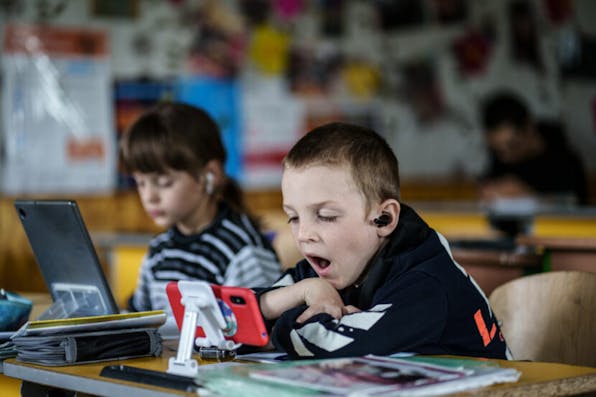
April 2, 2025
For Today’s Children, Screens Are Becoming Formative Institutions
Putting digital dynamite in the hands of babies.
Today, it is not uncommon for daily activities to be mediated through data-gathering screens: when you are putting gas in your car at the gas station, the screen prompts you to respond to a survey, as does the credit-card checkout device held by your server at a restaurant. How would you rate your gas-station experience today on a scale of 1 to 5? Please tap the emoji that best expresses your feelings about your dining experience!
Not only do such frequent solicitations of opinion provoke decision fatigue; they also reveal some cultural practices we have too thoughtlessly accepted, including that every momentary reaction we have to the most mundane experiences should be registered and tracked in real time. The assumption beneath it—that the more our habits and behaviors are tracked, the better we will truly understand ourselves—is also worthy of reconsideration.
These conceits have produced a culture that valorizes things that can be quantified and turned into valuable data, while undervaluing the qualitative experiences which cannot effectively be measured in the same way. This might be a tradeoff worth accepting when it comes to our shopping habits. The more Amazon knows about the brand of lightbulb I prefer, the more it can tailor its recommendations for other products I might need. The technologically enabled convenience the online shopper experiences might have real-world consequences (the decline of brick-and-mortar retail, the rise of more intrusive individual surveillance and consumer profiling), but we seem comfortable living with them.


